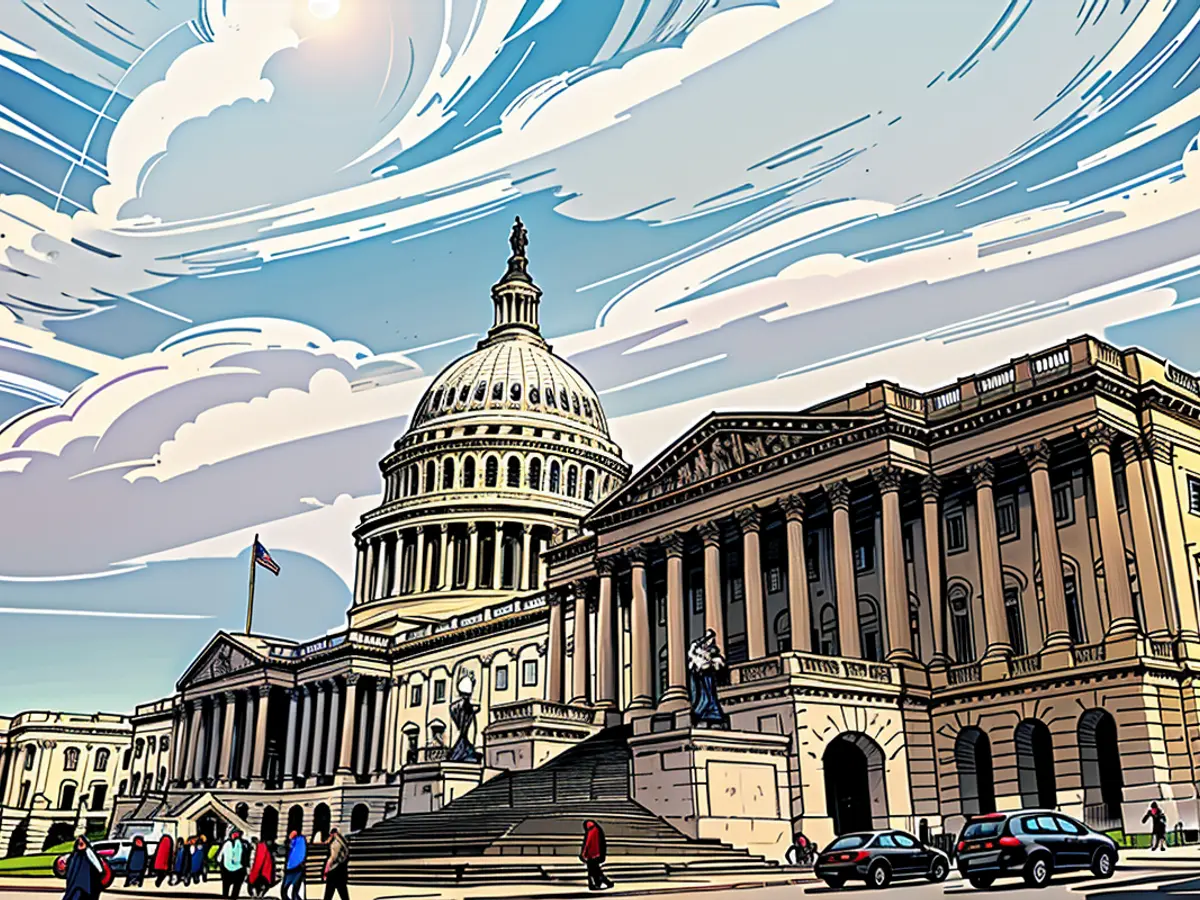Anticipated move by top House Republican figures involves relying predominantly on Democratic support to maintain government operations, bypassing potential GOP resistance.
The House Rules Committee removed the budget spending proposal from consideration on Monday evening, prompting the House Republican leadership to arrange for its passage through a procedure called "suspension of the rules," which necessitates a supermajority vote of two-thirds.
For this Congress, it's become a common occurrence for the Republicans to rely on the Democrats to keep the government operational, and this tactic even led to the ousting of previous Speaker Kevin McCarthy from his position. This time around, House Speaker Mike Johnson understands that the Democratic votes will likely greatly outnumber the Republican supporters.
Rep. Jim Banks of Indiana voiced his displeasure, stating, "It's disappointing. We have a Republican majority. We should be reducing spending."
Regarding Johnson's handling of the situation, Banks added, "He had the opportunity to introduce a budget bill that eliminated unnecessary spending, but we've had a Republican majority for two years without seeing this happen. I had hoped that a Republican majority would result in spending cuts, but we'll finish the Republican majority without any such reductions, which is why I'll be casting a no vote."
Although Rep. Byron Donalds of Florida did not go so far as to label Johnson's leadership a mistake, he expressed his personal disagreement, saying, "I wouldn't say it's a mistake for me. I can't support it personally."
Many Republicans are becoming increasingly frustrated with their colleagues who refuse to back the bipartisan spending bills, yet also reject any Republican spending plans that could provide leverage in negotiations with the Democrats.
As GOP Rep. Mike Simpson of Idaho pointed out, "It's funny that the same individuals who dislike the CRs don't help us pass the bills, referring to the continuing resolution, or CR, which will fund the government through December."
On the weekend, Johnson revealed the CR to keep the government running until December 20th. Government funding is set to expire at the end of the month, and Johnson wrote to his GOP colleagues explaining that he does not want a shutdown to occur just a few weeks before the election.
"As history demonstrates and current polling indicates, shutting down the government less than 40 days before a decisive election would be an example of political incompetence," he said in the letter. "From now until election day, I will continue to exert all my efforts and focus solely on growing our majority for the 119th Congress."
Following his previous attempt to pass a similar funding bill that included legislation endorsement from former President Donald Trump to address noncitizen voting, Johnson ultimately failed to secure passage last week.
CNN journalist Lauren Fox contributed to this report.
In this political scenario, the Republicans have relied on Democratic votes to keep the government operational, a pattern that even resulted in the ousting of former Speaker Kevin McCarthy. Despite having a majority, House Speaker Mike Johnson faces challenges in passing budget bills, leading Rep. Jim Banks to voice his displeasure and announce his intentions to vote against any spending reductions.
In the House, disagreements among Republicans regarding bipartisan spending bills and their own proposals have resulted in a stalemate, making it challenging for Speaker Johnson to reduce unnecessary spending as desired.








